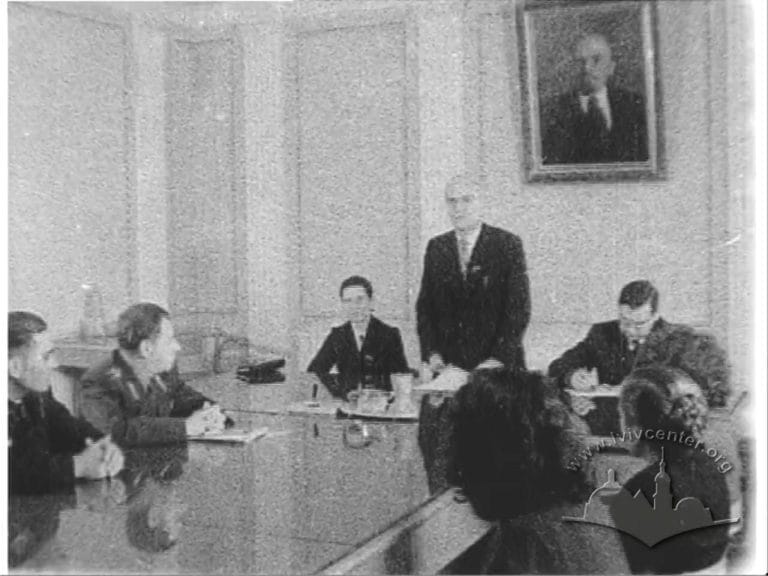Resolution No. ____
of the Council of Ministers of the Ukrainian SSR and the Central Committee of the Communist Party of Ukraine, _______1952, Kyiv
On Temporary Financial Allowances
Due to a significant decline in consumer goods prices in recent years, the Council of Ministers of the USSR issued Resolution No. 3700-1470 on August 12, 1952, titled “On Temporary Financial Allowances.” In compliance with this resolution, the Council of Ministers of the Ukrainian SSR and the Central Committee of the Communist Party of Ukraine hereby DECIDE:
- To reduce the salaries of leading Soviet and party workers of the central and local bodies based on the following scale:
Salaries of 6,000 to 4,000 rubles: reduced by 33%; Salaries of 4,000 to 3,000 rubles: reduced by 25%; Salaries of 3,000 to 2,000 rubles: reduced by 20%; Salaries of 2,000 to 1,000 rubles: reduced by 15%
- Employees earning a salary of 1,000 rubles or less shall maintain their current level of supplementary allowances.
[3]…
- The Department of Affairs of the Council of Ministers of the Ukrainian SSR, along with the executive committees of the regional and Kyiv City Councils of Workers’ Deputies, is directed to pay temporary allowances to Soviet employees of the central apparatus and local bodies effective from August 1, 1952, according to the amounts approved in this resolution.
- The Department of Affairs of the Central Committee of the CPSU is directed to pay temporary allowances to leading workers of the republican and local party bodies from August 1, 1952, as per the approved amounts in this resolution.
- The executive committees of the regional and Kyiv City Councils of Workers’ Deputies must submit approved lists of employees eligible for temporary allowances to the Council of Ministers of the Ukrainian SSR by September 5, 1952.
[7]…
[8]…
August 25, 1952



On August 12, 1952, the Soviet government issued a resolution titled “On Temporary Financial Allowances,” which was subsequently adopted by the Ukrainian government and the Central Committee of the Communist Party of Ukraine on August 25. Although the all-Union decree was only passed by the government without the Central Committee of the CPSU’s direct involvement, this distinction was negligible as both bodies were led by J. Stalin. Unlike the earlier 1948 resolution, the title of this did not directly address the essence of the changes; instead, it subtly indicated a worsening of the financial conditions for the ruling elite.
The resolution included a justification for the reduction of temporary allowances, citing “a serious decline in prices for consumer goods.” This statement reflected reality, as the Soviet government had been conducting annual price reduction campaigns since 1948.
The approach to cutting financial privileges was differentiated, using a progressive reduction scale from 15% to 33%, depending on the current level of special payments. Details of these reductions, along with the new and previous remuneration for various central and regional officials—spanning party and Soviet authorities, Komsomol leaders, certain judges, editors of republican and regional newspapers, central and regional party schools, and some city committees—were contained in annexes marked “top secret.” Notably, those receiving the smallest special payments saw no change, which helped narrow the gap between different levels of nomenklatura, but maintained a significant disparity between high-ranking officials and millions of ordinary citizens.